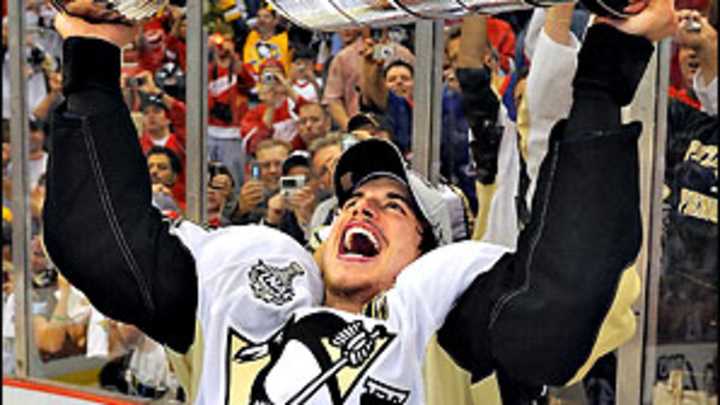My Sportsman: Sidney Crosby

The first time I saw Sidney Crosby he was a 16-year-old making the Quebec Major Junior Hockey League rounds of Halifax, Sydney, and his home base of Rimouski, which struck me as the equivalent of Mozart playing in a farmer's field. Obviously, Crosby was a prodigy. He was exquisitely gifted for someone not physically imposing (although he did have great hockey haunches) and was blessed with a vision of the ice as instinctive as it was impressive.
"So?" a friend asked when I returned from the trip. "Real deal?"
"I'm can't guarantee he'll ever win the Hart," I told him, "but I promise you he'll never win the Lady Byng."
Crosby did win the Hart Trophy as the NHL's MVP in 2007, but the Lady Byng -- "gentlemanly conduct" is part of the criteria -- shall forever elude him. Even as a teenager, Crosby had just the right mix of sandpaper in his game that ultimately would contribute not only to his survival but also to his success.
Of course, not being Lady Byng-worthy does not disqualify him form being the 2009 Sportsman of the Year.
It was apparent that points -- simple yardsticks for assessing success -- would always be there for the Pittsburgh Penguins center. But from the moment he entered the league post-lockout and joined fellow rookie Alexander Ovechkin in energizing the game -- one day the NHL might date the years prior to 2005 as B.C., as in Before Crosby -- he needed to be held to a higher standard. Beyond 100-point seasons, Crosby would quickly have to lead a team to a Stanley Cup to elbow his way into the pantheon.
Wayne Gretzky needed five NHL seasons before his Edmonton Oilers won a Cup. Mario Lemieux, Crosby's owner and landlord in Pittsburgh, took seven. Some two months shy of his 22nd birthday, Crosby beat them to the virtual finish line, becoming the youngest captain in NHL history to win the Cup. He needed just four seasons.
This was a different Crosby last spring. Although he has never scored 40 goals in a season -- the one item now missing from his curriculum vitae -- he willed himself into a playoff goal-scorer. He had a playoff-high 15 in the Penguins' 24 games, in addition to 16 assists. Crosby, who had 33 goals during the regular season, became a scorer by going to the dense traffic areas. If you laid all of his 15 goals end to end -- no, this is not a Dorothy Parker joke about co-eds -- well, you can hit a pitching wedge further than that.
Crosby didn't win the Conn Smythe as playoff MVP. Evgeni Malkin, his power-play partner who centers a different line, took the honor with 14 goals and 22 assists. Malkin thrived in the Cup final (two goals, eight points) while Crosby was limited to one goal and two assists and a minus-three rating, which was more a function of the Detroit Red Wings than anything he did or didn't do. Faced with the dilemma of how best to employ his No. 1 line and top defense pair, Detroit coach Mike Babcock decided to send his top guns against Crosby's line throughout the series, often changing on the fly in the three games in Pittsburgh.
In the Game 7 handshake line (to which Crosby was tardy by the Wings' standards), Babcock pumped Crosby's hand and said, "Great leadership."
Babcock chose Crosby.
And I choose Crosby as the Sportsman of the Year.
Agree with this selection? Give us your Sportsman pick here
